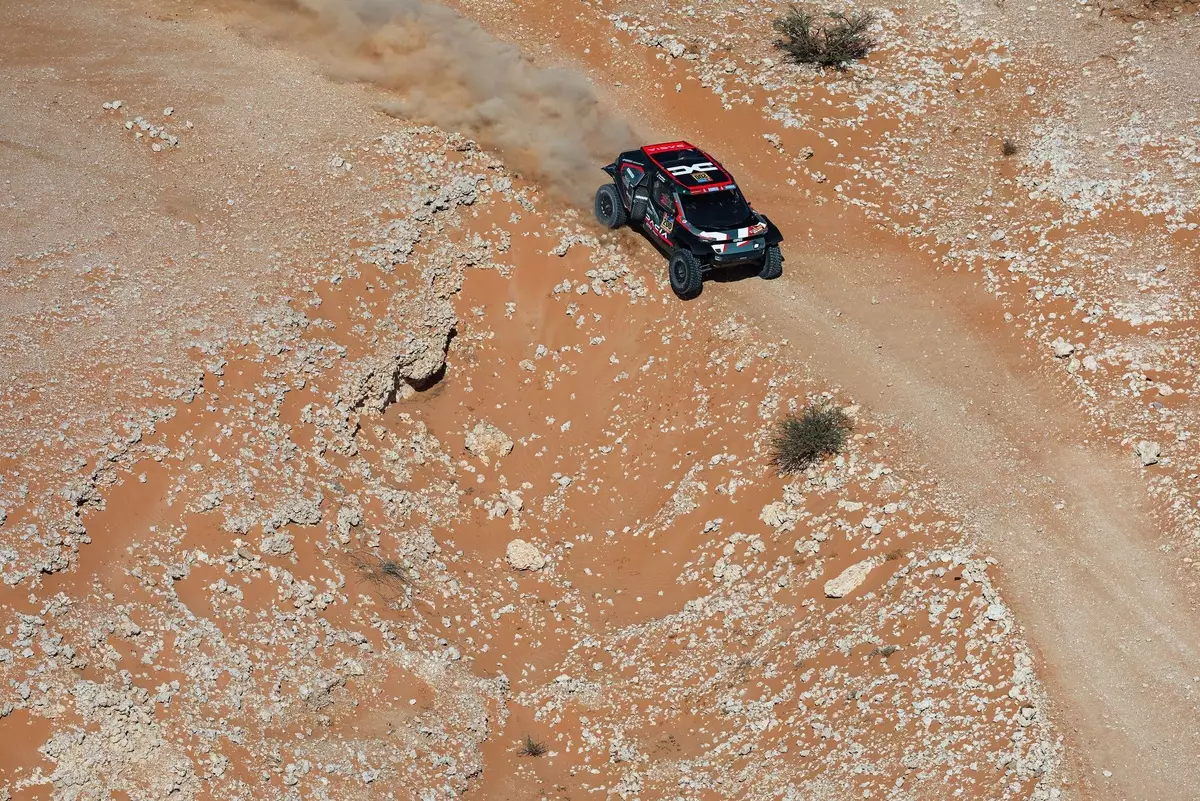The Dakar Rally is often referred to as the ultimate test of endurance and skill for rally drivers. Situated in the unforgiving terrains of Saudi Arabia, this year’s event has proven to be no easy feat, especially for veterans like Nasser Al-Attiyah. With his eyes set on a sixth title, Al-Attiyah confronted an obstacle he likely never expected to face: a navigation error that would prove critical during Stage 10. As the pressure escalates in a competition that demands not only speed but also flawless navigation, Al-Attiyah finds himself grappling with the mental fallout of a significant mistake.
Al-Attiyah began Stage 10 with high hopes, yet an early blunder derailed his progress. Just 9 kilometers into the stage, a misstep orchestrated by co-driver Edouard Boulanger left them lost in a complex landscape of shifting dunes. This navigation error resulted in a staggering 13-minute setback as they struggled to recalibrate their route toward the initial checkpoint. Given the brief nature of the stage—only 120 kilometers in total—the time lost could not be recovered. Al-Attiyah’s position plummeted to 30th, marking the lowest point in his Dakar 2025 campaign. In the aftermath, the seasoned driver’s outlook soured, as he explicitly voiced his frustration and disbelief over being disoriented in the desert.
The Mental Toll of Racing
In rally driving, mental resilience is as crucial as mechanical prowess or driving skills. Al-Attiyah expressed feelings of disappointment and stress following the incident, emphasizing the weight of this setback on his morale. “I need to talk and see what happened. Because now there’s a lot of stress, we need to talk,” he stated candidly. Such reflections underscore a vital truth in competitive racing: the psychological impact of errors can linger long after the dust has settled. This situation is compounded by the looming conclusion of the Dakar Rally, where each day carries heavy implications for overall standings and personal aspirations for victory.
Following the debacle, Boulanger, the co-driver, took full responsibility for the navigation error, revealing insights into the critical moment that led to their lost direction. “It wasn’t hard over the whole day; it was hard because I made a big mistake at kilometer 10,” he recounted. His admission points out that even seasoned professionals can face moments of misjudgment that reverberate throughout the race. The complexity of the event is reflected in his description of the roadbook, which became a source of confusion at a pivotal moment. Such lessons serve as stark reminders of the need for absolute focus amidst the chaos of the rally.
The Road Ahead: Challenges and Realities
With two stages remaining in the Dakar Rally 2025, Al-Attiyah’s situation has become increasingly precarious. At present, he stands fourth in the overall standings, with a daunting 30-minute gap to the leader, Henk Lategan. The reality of regaining a podium position, let alone vying for the championship, is a monumental challenge. “I don’t know, we’ll see what we can do tomorrow,” he confessed, hinting at the uncertain yet disciplined approach he must now adopt as they prepare for the remaining miles.
This incident serves not only as a harsh lesson for Al-Attiyah and Boulanger but also as a broader reminder of the numerous variables that come into play in motorsport. As the rally winds down, fans and competitors alike will be eagerly watching to see how Al-Attiyah manages to navigate not just the course but the psychological landscape of competition going forward. The Dakar Rally is a test of grit, strategy, and perseverance, and despite the setbacks, it thrives on the unpredictable twists and turns that make each year’s race compelling.


Leave a Reply